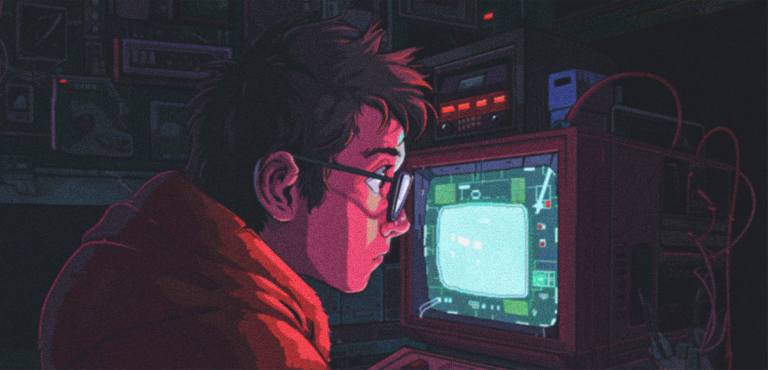
Five Modern Technology Myths: Debunked
We live in an age where technological advancements unfold at a dizzying pace. Smartphones that used to be fancy are now something most people can’t live without. Artificial intelligence (AI) is everywhere, and the internet has gone from a new thing to something we rely on daily. With such rapid evolution, it’s easy to feel we know everything about technology. But the truth is, there are still a lot of myths and misconceptions out there.
From the perceived invincibility of cybersecurity to the misconception that AI will replace human workers, these tech delusions can lead to complacency, poor decision-making, and a false sense of security. This article will explore some of the most common tech myths and provide a reality check to debunk them. By understanding the real deal, we can better handle the crazy world of technology and make smart decisions.
1. Antivirus software isn’t a magic shield
Many believe that once they install antivirus software, they are completely protected from all viruses. Unfortunately, this is a misconception. While antivirus software is a crucial tool in your digital arsenal, it’s not a foolproof solution. It’s better to think of antivirus software like the locks on your front door. These locks deter most intruders but cannot prevent every possible threat.
In addition to using antivirus software, it’s crucial to practice good online habits, such as using strong passwords, keeping your software updated, and being cautious about clicking on suspicious links or downloading from untrusted sources. All these measures work together to provide a strong defence against online threats.
2. The incognito illusion
Incognito mode, often seen as a digital invisibility cloak, offers privacy but doesn’t guarantee complete anonymity. It’s a common misconception that browsing in incognito mode shields your online activities from prying eyes. While it prevents browsing history and cookies from being stored on your device, it doesn’t conceal your presence from the websites you visit, your Internet Service Provider (ISP), or even Google itself.
Despite Google’s assertions that it blocks all third-party cookies in incognito sessions, escaping the grasp of advertising networks and tracking tools entirely is unrealistic. Even if you don’t log into any accounts, websites can still see information like your IP address and the type of device you’re using.
3. AI: Not as unbiased as you think
The notion that AI is unbiased is a misconception. These systems are trained on vast amounts of data created by humans and inherently carry societal biases. If the data contains biases, the AI is likely to replicate those biases. According to researchers at the U.S. National Institute of Standards and Technology (NIST), bias in AI can start at the point of development.
Even when AI developers attempt to create unbiased systems, their biases may prevent them from identifying and removing all the biases in the training materials. Additionally, the sheer volume of data makes it extremely challenging to audit and cleanse all biases thoroughly. When bias becomes embedded in an AI system, it can lead to outputs that unfairly favour or disfavour certain groups of people. This is particularly concerning when the AI makes decisions that impact individuals’ health, financial well-being, access to opportunities, and other critical aspects of their lives.
4. Closing all apps saves battery life
Contrary to the common misconception, closing all apps on your smartphone is not an effective way to conserve battery life. According to tech journalist Steffen Herget, it takes more time and processing power for a smartphone to restart an app completely closed than to let it remain open in the background.
When you close an app completely, the device must go through the entire start-up process again the next time you open it. This increased processing demand uses more energy than if the app had been left running in the background in a sleep state, which requires less power to wake up and resume. So, rather than obsessively closing all your apps to save battery, letting them run in the background is generally more efficient. The phone’s operating system is designed to manage background apps efficiently, using minimal resources when they’re not in active use.
5. Apple Macs are virus-proof
It is a common misconception that Apple Macs are completely immune to viruses and malware. While Apple’s operating system does have strong security measures, no computer system, including Macs, is entirely invulnerable to potential security threats.
Contrary to the belief that Macs are virus-proof, researchers discovered the first Apple firmware viruses as early as 2015. Furthermore, the threat landscape has continued to evolve, with malware targeting Macs showing a significant increase in recent years. Data shows that malware threats on Macs increased by 400 percent by 2020.
More concerning, in 2021, over 29,000 Macs were impacted by a mysterious malware strain, highlighting that Apple’s systems are not immune to security vulnerabilities. Over the past decade, Apple users have also experienced a sharp rise in security issues affecting their devices. Despite this, many Mac users may have a false sense of security and lower their guard regarding cybersecurity precautions.
Distilled
Developing strong critical thinking skills is paramount as technology becomes increasingly integrated into our daily lives. We must always question the claims we encounter, seek authoritative and reputable sources, and strive to understand the underlying realities rather than relying on oversimplified narratives.
By staying informed and maintaining a curious, analytical mindset, you can navigate the ever-evolving technological landscape with greater awareness and make choices that align with your needs and values. Embracing this approach will serve you well in the digital age and help you avoid the pitfalls of commonly held tech misconceptions.